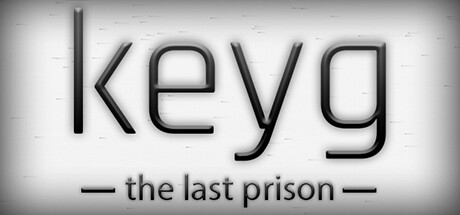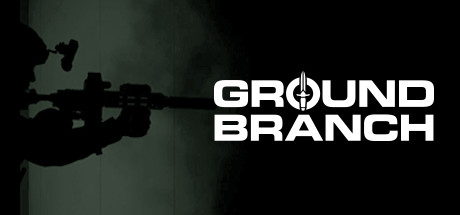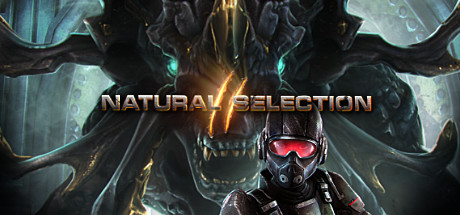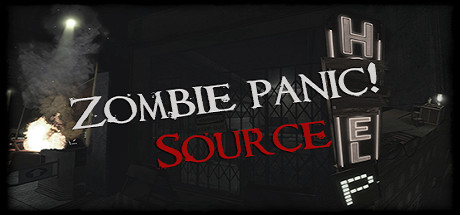keyg: the last prison Reviews
Explore a world like no other, where your keyboard becomes a level, and each key represents a room on that level. You’ll face various logic puzzles, challenging arcade levels, cunning enemies, and unexpected surprises.
| App ID | 922550 |
| App Type | GAME |
| Developers | Axel Sonic |
| Publishers | Axel Sonic |
| Categories | Single-player, Steam Achievements, Steam Cloud |
| Genres | Indie |
| Release Date | 13 Dec, 2018 |
| Platforms | Windows |
| Supported Languages | English, Spanish - Spain, Russian, Spanish - Latin America |

133 Total Reviews
114 Positive Reviews
19 Negative Reviews
Mostly Positive Score
keyg: the last prison has garnered a total of 133 reviews, with 114 positive reviews and 19 negative reviews, resulting in a ‘Mostly Positive’ overall score.
Reviews Chart
Chart above illustrates the trend of feedback for keyg: the last prison over time, showcasing the dynamic changes in player opinions as new updates and features have been introduced. This visual representation helps to understand the game's reception and how it has evolved.
Recent Steam Reviews
This section displays the 10 most recent Steam reviews for the game, showcasing a mix of player experiences and sentiments. Each review summary includes the total playtime along with the number of thumbs-up and thumbs-down reactions, clearly indicating the community's feedback
Playtime:
19 minutes
Quite original controls. Not easy to get used to, but certainly a great change from most standard games. It's almost free, so it's certainly worth its cost. Is it fun? Perhaps after one plays for a long enough amount of time and get fully used to how the player is controlled, but I'll recommend it regardless for its unique control style and low cost.
👍 : 0 |
😃 : 0
Positive
Playtime:
249 minutes
The way I see it, keyg is a puzzle game that relies a lot on knowledge and very major experience with puzzles like these. It has a simple yet smooth style to it, and somewhat meh but fitting music to go with it. However, there are a few things that can be done better.
Hint System / Difficulty Change
I think it would be a bit better if a hint system could be added, or a sort of difficulty changer, as a lot of this took some intense brain power and a bit of guide reading. It seems that this can rely on some forms of knowledge that not everyone may know, like roman numerals, as well as a few things you may need to take a guess on. A lot of this was guessing because the clues for the levels weren't very helpful, though it is nice that difficulty was provided. It also becomes a bit annoying how in the reaction time levels I have to repeat it around 30 times just because I got clipped right at the last section or my game couldn't react fast enough to realize there was an open space to move through. Speaking of, this moves me to my next suggestion:
Please Fix the (somewhat) Lag
The lag in question isn't really lag, but more of a problem that the game can't react fast enough to. If I try to move fast in a level where I have to be quick, I bump into an open doorway like it was a normal wall and have to spam the button to really get in. This isn't that important of a problem because you can just spam the button to get through, but I do recommend that it's fixed.
That's just about it, actually, everything else I really enjoy. Good style, good music, great story, but the gameplay could be better.
I would still recommend, 7/10.
👍 : 0 |
😃 : 0
Positive
Playtime:
256 minutes
Sure, I guess I dislike it.
I understand that this is an indie game, but I felt frustrated completing it.
It's not responsive especially if you try to enter a fast keyboard sequence. And the way it makes the game harder (which is lame) is through speeding up the gameplay [spoiler] (especially during the 2nd playthrough) [/spoiler]. With a mix of unpolished stuff included, I do not recommend this game.
👍 : 0 |
😃 : 0
Negative
Playtime:
10 minutes
This game is only playing keyboard Well making game.
Good making funny adventure puzzle game.
👍 : 0 |
😃 : 1
Positive
Playtime:
162 minutes
So, i'm writing a review, meaning that this game is something special. Actually, wasn't expecting much. I watched the trailer and my first thought: "hah....so.....ahhhhh, i see". I put it into the wishlish, considering that this game will be imprisoned (hah, spoilers) here for ever. However, i eventually bought it and launched. Well, to be honest i liked the puzzles a lot - i've never felt myself that smart before, except "lasers" and "sad" levels, there i felt like a complete idiot and had to look for a clue on forums.
I would say that this game deserves more attention. I adored completely different types of puzzles, their order and even philosophical context. Shoutouts to dev, i know he checks reviews sometimes, so good job, i had a lot of fun with it.
In general - good visuals (as good as they can be in that style), GREAT inventive movement mechanic, smart puzzles and good story. I would definitely recommend it.
👍 : 1 |
😃 : 0
Positive
Playtime:
600 minutes
i review games on steam after i 100% complete them! check out my reviews to see all the games i have completed!
keyg is a puzzle game in which you maneuver around using the keys on the keyboard, moving from Q to W, and so on and so forth. there are varying levels of complexity. full price is $5, but i got this for 90% off (49 cents) and i could not recommend that deal enough. this isn't the best cheap puzzle game you'll find on steam, but it definitely is one of the better ones that you should buy.
👍 : 3 |
😃 : 0
Positive
Playtime:
197 minutes
keyg is a game with a quite innovative gameplay style and some really interesting mechanics. However, I can't quite call it a logic puzzle. For the most part, it is a skill game.
[list]
[*][b]Gameplay:[/b] gameplay features a handful of different room types, but they generally don't diverge from those. This is my main gripe with the game, and the reason I cannot recommend it: at first glance, this looks like a fun puzzler. There were some really clever levels involving navigating with certain barrier-breaking items, or figuring out a set of movements. But then, in-between those you have levels where, unless you have really fast reflexes, will get you stuck for a really, [i]really[/i] long time. My strategy for the "key-mashing" type of levels was to basically look at my keyboard and press a series of keys in a loop. The problem with this approach is that it completely invalidated the "random enemy spawning" catch of the level, not to mention the more obvious issue of me not actually looking at the game at any point in that level; I'd just loop those keys and pray that it ended quickly. Thankfully, there are only three of those levels but, in my personal opinion, there should have been exactly zero. I'll cover this more in the Accessibility topic.
I appreciate that this game is not a one-trick pony. I like that it has many ideas it wants to explore. But with a couple exceptions, those ideas are never explored in innovative ways. The only element of "surprise" in this game, the only source of the "aha!" moment is through its riddles. Most of the puzzle levels are less about the environment or mechanics and more about "find the odd thing" or "figure out password". The game mechanics were only used as a means to an end, not the source of challenge itself, which in my opinion is just a waste of potential. My favorite levels were those that made you stop to think about which barriers to break, or how to navigate the room such that you stepped on activator keys in the correct order, but those were few and over rather quickly. The fast reaction levels were, at the core of it, just the same type of challenge in different styles. Run from the "X" key to the "Y" key as fast as you can. Either because red circles, or because pulsing timer with death keys in-between, or because another character told you to do so.
[*][b]Physics:[/b] you'd think that, in a game about navigating with keys, there wouldn't be space for physics, but here we are. The player character moves between tiles by sliding across in a straight line. No problem there, until you have to move between two tiles with one in-between. Since you [i]have[/i] to traverse the in-between tile, and since so many levels require fast action, your instinct will be to press the in-between key, then the destination key as soon as possible, but if you're not at the center of the tile by the time you press the next, and if the player character is in the region of the in-between tile, then it will start swaying in the direction of the new tile from wherever it is, potentially hitting a wall or missing a button.
At no point in the game does this "in-betweening" movement get implemented as either a mechanic/intended move or as a deliberate barrier. It's simply a consequence of the fact that the player character is a physics object which doesn't regard the keyboard as a grid, but just as a regular, 2D map.
[*][b]Difficulty curve:[/b] the game starts off really easy. It lets you get used to the keyboard gameplay, and gradually ramps up in difficulty. So far so good. Then you get to the first "key-smashing" level. After that, it's all game. Maze-like level design, riddles with confusing clues, sweeping puzzles that effectively require brute force, trial-and-error to get solved, and so on. The impression I get is that this game either had no playtesting at all, or that playtesters only played up to a certain point. It genuinely feels like the game takes a turn to "gameplay exploration", where a lot of ideas are explored, but they aren't introduced in a well-paced manner, or aren't explored to their potential.
Instead of building up on your acquired skills and understanding of mechanics to derive its difficulty, it only gets progressively faster and more instinctive/reactive. This is evident by the fact that the early levels had absolute no randomization, whereas late levels almost exclusively relied on random events. If the gameplay was consistently about navigating levels that involved random events, it wouldn't be much of an issue, but the inconsistency of having well thought out and designed puzzles versus what I can only described as battle arenas is remarkable.
[*][b]Graphics:[/b] the game is minimalist in nature and feature elements comprised mostly of lines and solid colors. I commend the creators for that, since the simplicity and consistency makes the game easy to understand and navigate. However, I can't help but feel like the different mechanics could have used more distinctive designs. Some special tiles are simply too similar to other types of tiles, and most of them are either rectangles or lines. I believe exploring different shapes and forms, while still sticking to the general "vector-like" art direction, would have been a wiser choice. I'll cover this more in the Accessibility topic.
[*][b]Music and SFX:[/b] this is one of the game's highlights, in my eyes (or, in this case, ears). The game has a small but very atmospheric soundtrack that appropriately matches the circumstances in which it is played. It is never so intense as to be distracting, nor so quiet as to be dismissed. The sound effects are also very well designed, with each mechanic having its own characteristic array of sounds. It also serves as great auditory cues in levels where that can be helpful.
[*][b]Narrative:[/b] the story this game tells is as simple as it can get, which is not a complaint, only an observation. This game features a handful of meaningful character, which each have their own identity and personality and role to fulfill. While the player character itself doesn't have any dialogue lines, it still feels like an important part of the narrative, especially near the end. Writing was solid, jokes were okay, and general plot was serviceable. A very "by-the-books" story, but still entertaining, and really adds to the game.
[*][b]Accessibility:[/b] and this right here is the reason why I cannot, in good faith, recommend this game. Even though I mentioned many perceived flaws and shortcomings with many aspects of keyg, I would have recommended it had it not been for the fact that, for a lot of people, this game is, and I mean this with no sarcasm, literally unplayable. As many mentioned, it lacks the one feature a game about a keyboard should contain: key mapping. While it does offer three keyboard layouts, it doesn't account for the fact that some people have international keyboards, or just a different layout (QWERTZ, for instance). It also offers a "color blindness" mode, but all it seems to do is switch green tiles for white - which is just confusing: why not use different shapes/fill modes for them? But mainly, this game is completely out of reach for anyone with even the mildest condition that might hinder hand/finger movement or reaction time. If you're not a fast typer, this game is not for you. If it takes you more than a fraction of a second to locate a key, this game is not for you.
[/list]
My hope is that, some day, some dev will see this and add features and settings so that more people can play the game. Be it through redesigning levels, creating an Assist Mode, or just more settings. If that alone happens, I'll update this review. But until then, this game is just a very interesting and creative idea that didn't know its footing.
👍 : 8 |
😃 : 0
Negative
Playtime:
240 minutes
I love the concept of this game; it is very unique and, if executed well, has the potential to make a great game. The puzzle parts of this game are done well and the puzzles themselves have interesting solutions, a few of which stumped me for quite a bit of time. However, the non-puzzle parts of the game are disproportionately difficult, especially so in the second, harder playthrough. The controls I take no issue with—they're a bit strange, but this is done so intentionally and don't take too much time to get used to—it's the fact that sometimes it feels like you need to have inhuman reaction time in order to proceed.
Take, for instance, the levels where you have to quickly navigate a maze to get to a letter that flashes on screen: the amount of time that you have to get to the next letter appears to depend on its proximity on the keyboard to where you are, rather than how many keystrokes it takes to reach it. Even though the letter that flashes might be only one or two keys away on the keyboard, you may need to use six keystrokes, and you simply don't have enough time to reach it, forcing you to start over. In addition, if you go [i] too [/i] fast, then you don't quite reach the square before you move again, causing you to bonk. At that point, it's essentially impossible to get to the right place in time depending on where you're going. For the levels where you have to destroy the obstacles that spawn around you before they reach you, there is a considerable amount of lag before you can move again, making it much more difficult than it needs to be.
The story of the game is completely unnecessary and uninteresting. I found myself skipping through all the text because it was not essential to understand the game. The game does not need a story at all—if all the player was told at the beginning was that they needed to escape, absolutely nothing would change. Take Baba is You, an excellent puzzle game I would recommend to anyone who likes puzzles, for example. That game needs no story, and therefore has none. All a story would do would slow down the game, as it does in keyg.
👍 : 5 |
😃 : 0
Negative
Playtime:
283 minutes
I purchased [i] keyg [/i] during a sale without putting much thought into it, simply finding the screenshots and trailer appealing as well as its bargain of a price: little did I know I was in for a surprise.
The game revolves around different sets of puzzle-like levels that the player must guide their selected avatars through (a circle, a square or a triangle): in order to spice things up, the layout will be based on a keyboard, which means that you’ll have to press the correct keys in order to progress. The game will introduce some mechanics and different stipulations to clear levels as you advance as well as increase the difficulty, so quick reflexes and smart thinking will be needed.
There isn’t much to say about the “story” bits, but they were entertaining enough and didn’t really drag on to the point of being intrusive. Visually, the game is simple yet clear, which helps give it a good performance when precise timing is required (at least it performed well for me): along with that, despite having just a few tracks, what’s there is pleasant and never got ear-grating if I had to redo some levels after a failed attempt.
It’s worth noting that, along with a harder NG+ and a modest language selection, there’s also a couple of accessibility options on offer: players are able to select the type of keyboard the game will be based on (QWERTY, QWERTZ or AZERTY) as well as toggle colour-blind mode if they need it (the option is there though I haven’t experienced it due to not really needing it).
Finally, I managed to fully 100% it in a bit under 5 hours, which personally hit a sweet spot in order to not make the experience drag on, and I’m sure it can take even less if you don’t get stuck in puzzles nor go for 100% (doing so requires playing more than once and in hard mode).
Overall, I’m genuinely surprised with how much of a good time I had with [i] keyg [/i]: it’s been stimulating, entertaining and I could easily recommend anyone to give it a try at least once. However, I would suggest laptop owners to be aware about how to lock and unlock the Function keys since it’s required to press some of them near the end.
👍 : 4 |
😃 : 0
Positive
Playtime:
22 minutes
This is a wonderfully innovative game that's well worth playing and it's good value too!
You control your character around keyboard shaped levels by typing on your keyword. You can only move to adjacent keys, but a good variety of puzzling obstacles get in your way. There is a narrative to give story context but it's mostly about the puzzles. The background music is chilled and fits well.
👍 : 23 |
😃 : 0
Positive







